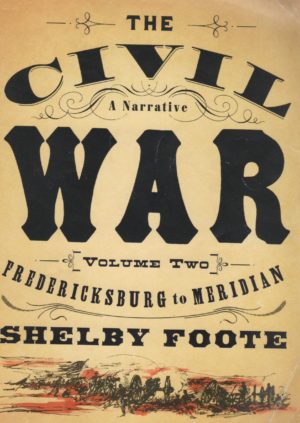
My friend Dave gave me Foote’s trilogy about a year ago and told me I had to read it. I always do what Dave says and so, here I am, having finished the second mammoth tome in Foote’s epistle of the war that still, in many ways, defines America.
As with the first volume, this second offering in the set is chock full of memorable scenes, speeches, maps, observations, and details regarding the battles fought to preserve the Union. And as indicated in my first review of this series, Foote’s goal is an admirable one, much like my goal in writing Mr. Environment: The Willard Munger Story a biography of my conservationist uncle. Both works tend to be a bit long for the casual, recreational reader but with purpose: For in both works one can find essentially everything one needs to know about the topics!
Foote is a good writer who, from time to time, could have used a better editor in terms of run-on sentence structure and the reporting of minutiae that most readers, except for academics scrutinizing this trilogy, could live without and still get the gist of what the Civil War was and what it means for present day America. There are two major themes that emerge from this series. First, that the North had a series of inept commanders in the East, charged with facing off with Lee, who continually failed to seize the day and deal the Army of Virginia the death knell that may well have ended the war a year or perhaps two before Appomattox. Only when Grant takes Vicksburg, after slogging around in the swamps of Mississippi for the greater part of a year to find a way to conduct a siege, and then follows that victory up with the saving of Chattanooga, does President Lincoln finally find the man he needs to face Lee and bring the war to an end. The second theme Foote weaves into the story is the that resentment and defiance which caused the South to secede, if one listens to present day political discourse, remains omnipresent in our politics more than a century after Lee’s surrender. Nothing has really changed other than the replacing of a D besides the names of politicians with an R. Lincoln’s party in the Deep South is no longer his party: It is the antithesis of who and what he was at the end of his life in terms of unity and equality.
Like the trauma experienced by Native Americans due to genocide and removal policies, there can be no question that the devastation unleashed on the South when Grant turned over the Western theater of the war to Sherman, whose slash and burn tactics brought the breadbaskets of the South to their collective knees, still leaves a bitter taste in the mouths of some Southerners. The difference? The South attempted to sever the Union, thereby beginning the conflict. The native tribes? They were simply trying to exist in ancestral lands Europeans deemed “up for grabs”. There is no equivalency between the two and yet, in many ways, both strands of our past continue to haunt us as a nation.
4 stars out of 5.
Peace
Mark


